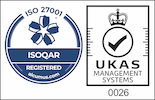About RAIQC
RAIQC is a web-based platform that simulates day-to-day practice, allowing healthcare professionals, students and educators to review and report on diagnostic quality medical images in a secure online environment. Using over 3000 real-world clinical cases, RAIQC offers structured reporting study lists for training and assessment for individuals and healthcare providers across a range of imaging modalities and disease areas. The platform also provides hosting for clinical research and AI validation studies that require review of medical imaging.

Healthcare Professionals
Enhance your medical image interpretation skills to increase the accuracy of your diagnoses and so improve patient care, while earning CPD/CME points.

Educators
Provide medical image interpretation training using RAIQC’s real-world cases, simulating real-world practice for your trainees to accelerate their learning.

Healthcare Providers
Upskill your workforce in accordance with national guidelines aimed at improving patient outcomes, while assessing your reporters' competencies.

AI Developers
Validate your algorithm performance against expert ground truth and human readers to gain comprehensive evidence required for regulatory approval.



 Feeding a patient through a misplaced nasogastric tube is a "never-event". Developed in collaboration with BSGAR, RCR, SOR and BAPEN, this package provides real-world cases, supported by step-by-step teaching, to help you train to check the positioning of nasogastric tubes on chest radiographs and confirm that they are safe to use.
Feeding a patient through a misplaced nasogastric tube is a "never-event". Developed in collaboration with BSGAR, RCR, SOR and BAPEN, this package provides real-world cases, supported by step-by-step teaching, to help you train to check the positioning of nasogastric tubes on chest radiographs and confirm that they are safe to use.
 Chest X-rays are the most frequently requested imaging investigation worldwide. A variety of health care professionals including doctors, nurses and radiographers are required to review chest X-rays. Curated by expert thoracic radiologists, this package aims to provide an introduction to chest X-ray interpretation.
Chest X-rays are the most frequently requested imaging investigation worldwide. A variety of health care professionals including doctors, nurses and radiographers are required to review chest X-rays. Curated by expert thoracic radiologists, this package aims to provide an introduction to chest X-ray interpretation.


 A head CT is the most common referral of cross-sectional imaging made by emergency departments. This package provides teaching and training using unenhanced CT images with examples of common abnormalities such as ischaemia, haemorrhage and space occupying lesions.
A head CT is the most common referral of cross-sectional imaging made by emergency departments. This package provides teaching and training using unenhanced CT images with examples of common abnormalities such as ischaemia, haemorrhage and space occupying lesions.





 Our COVID-19 content is for healthcare professionals wishing to accurately diagnose COVID-19 on chest X-ray and CT scans. It trains users to identify the presence and severity of the infection, and to differentiate these from other conditions that may present in a similar manner.
Our COVID-19 content is for healthcare professionals wishing to accurately diagnose COVID-19 on chest X-ray and CT scans. It trains users to identify the presence and severity of the infection, and to differentiate these from other conditions that may present in a similar manner.
 Rapid recognition of incorrect placement of devices, lines, or tubes on chest radiographs is a key skill and vital to ensuring patient safety. This package covers the basics of airway management devices, vascular lines, pleural drains, cardiac conduction devices and nasogastric tubes seen on chest X-rays.
Rapid recognition of incorrect placement of devices, lines, or tubes on chest radiographs is a key skill and vital to ensuring patient safety. This package covers the basics of airway management devices, vascular lines, pleural drains, cardiac conduction devices and nasogastric tubes seen on chest X-rays.



